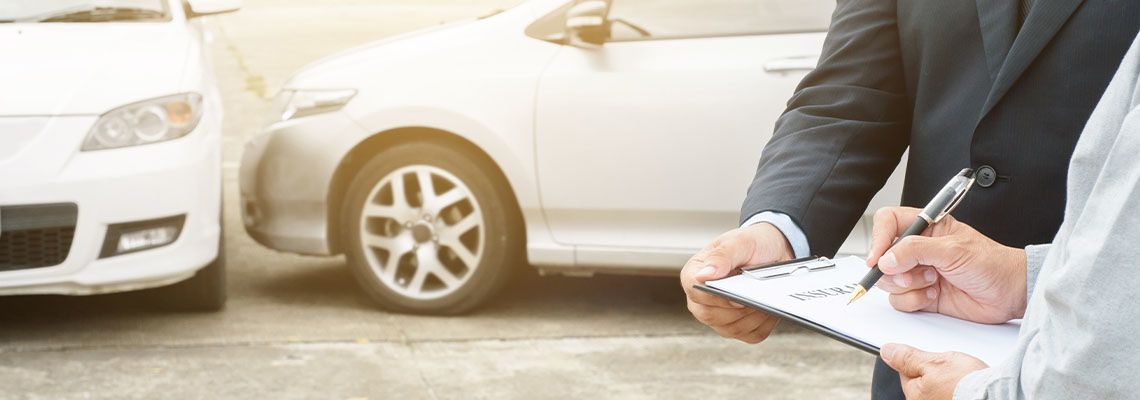Sifting through the aftermath of a car accident in California is confusing, especially when you're bombarded with various pieces of advice that may or may not be true. If you’ve recently been in a wreck, you should understand the truth about car accident claims, not just for your peace of mind, but also to ensure you're adequately compensated for your injuries and damages.

What You Should Know Before the Insurance Adjuster Calls
According to the most recent report from the California Highway Patrol, there were 187,211 total injury crashes statewide in 2019. While this number is down from the previous year (191,971 injury crashes in 2018), consider this startling statistic: on average, 1 person was injured every 1 minute and 57 seconds as a result of a traffic incident in California in 2019. Traffic wrecks are far too common on California roads.
Thankfully, personal injury and accident victims are entitled to seek financial compensation for their injuries and damages through a claim or lawsuit. Once they receive your claim, the insurance carrier’s claims adjuster will investigate the accident, examine your injuries, ask you some questions, and recommend a settlement amount.
Here is where a little bit of knowledge goes a long way: it is never advisable to speak with an insurance adjuster without first consulting with your personal injury attorney.
At Antaramian Law, APC I’m ready to offer skilled guidance and personalized representation for clients throughout California. As your legal counsel, I can evaluate all of the facts of your situation, explore your options to seek damages, and help you understand how to move forward after an injury.
Whether you live anywhere in the greater Los Angeles area or the rest of California, set up a one-on-one consultation with me. My firm proudly serves clients across Los Angeles, California, and in other communities throughout southern California in counties including Los Angeles, Ventura, San Bernardino, Riverside, Orange, and Kern.
Insurance Adjuster's Role
An insurance adjuster—also referred to as a claims adjuster, claims specialist, or independent claims analyst—is an ‘expert’ who is often called upon by the insurance carrier to examine, investigate, and help settle personal injury and accident claims. The claims adjuster will assess your case details, determine the validity of your claim, and propose financial compensation to cover your injuries and damages.
As part of the investigative process, the insurance adjuster may call the plaintiff when investigating personal injury or accident claims, asking for a recorded statement, an interview, or additional details about their injury.
Here’s where it’s important to stay vigilant about what you say—and what you do not say.
What Information Will They Ask Me to Provide?
The insurance claims analyst will most likely call you and request more information and documentation about the incident. This kind of information might include:
Your personal information, including your full name, phone number, address, and employer's contact details
Accident scene pictures or evidence of your injuries
Your personal account of the incident
Identities of witnesses and testimonies or statements made by them
Relevant information about your injuries, property damages, out-of-pocket expenses, and other accident-related costs
Details about your treatments received, medical costs, and other medical reports
The results of independent medical examinations (IME)
Before speaking with or providing further information to the insurance adjuster, you need to consult with your lawyer for detailed guidance. Many people accidentally and unintentionally hurt and diminish their own case by providing certain statements to their insurance company.
When They Request a Statement
When the claims adjuster requests a recorded statement, you should politely decline. Don’t speak to an insurance adjuster without your attorney. Keep in mind that the insurance claims adjuster can:
Take your statements out of context.
Interpret your statements in a way that you didn’t intend.
Ask confusing, ambiguous, or leading questions in hopes of catching you in a contradiction.
Use your statements against you during the negotiation process or in court.
Ultimately, your insurance company may attempt to use your statements to devalue your claim—or even deny your claim altogether. Consult with your legal representative before you speak to an insurance adjuster.
What To Say If You Choose To Give a Statement
Some individuals may choose to give a statement. Should you decide to do this, keep the following in mind:
Ask them not to record your statements.
Only answer questions that you are completely sure about.
Do not admit that you were responsible for the incident.
Do not provide additional information, including documentation, if you're not asked about it.
Do not sign any document without your attorney's review and consent.
Keep your statements brief.
A California car accident attorney can represent you in your case and advise you about what to say—or avoid saying—when the insurance adjuster calls.
Make Informed Decisions
No one should have to face the aftermath of an accident alone. When insurance companies get involved, things can start to feel overwhelming. That’s why getting detailed guidance and representation sooner rather than later is crucial.
At Antaramian Law, APC I'm committed to offering legal services with the aim of protecting the rights of accident victims. As your legal counsel, I can help file your claim, handle all communications and negotiations with the insurance provider and claims adjuster, and help you pursue the financial compensation you deserve.
Contact me at Antaramian Law, APC to schedule a simple case assessment before speaking with an insurance adjuster. My firm proudly serves clients anywhere in southern California, in counties including Los Angeles, Ventura, San Bernardino, Riverside, Orange, and Kern.
RECENT POSTS
Being involved in a hit-and-run accident is among the most distressing experiences one can endure on the roads. The sudden jolt of the impact followed by the realization that the other party has fled the scene can leave you feeling vulnerable and confused.


